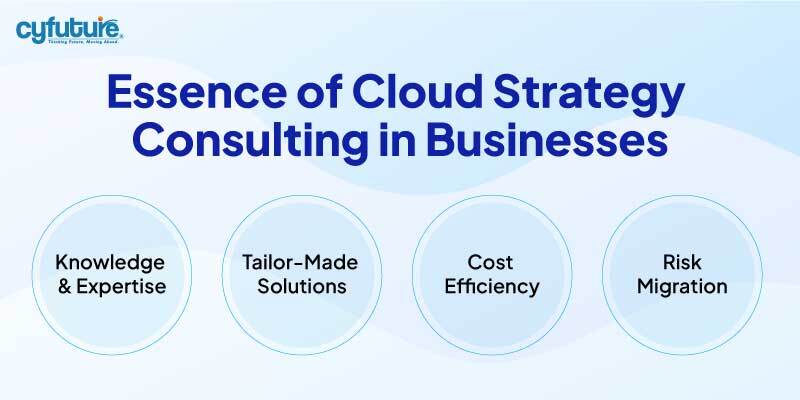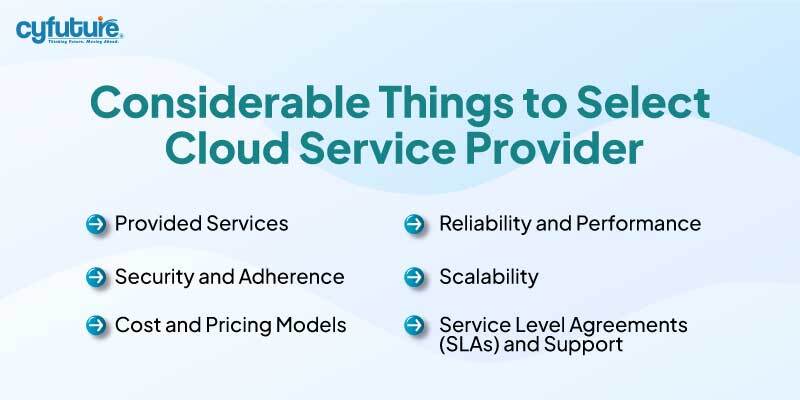-
Get Cloud GPU Server - Register Now!
Toggle navigation

By 2025, 85% of the companies are anticipated to adopt a cloud-first approach, according to a study conducted by Gartner experts.
For businesses looking to save expenses, boost operational effectiveness, and promote rapid innovation, the cloud computing landscape has become essential. However, it might be a daunting task to select the best cloud service provider in India with so many options available. This is where cloud strategy consulting plays a pivotal role.
Moreover, businesses can embrace cloud solutions that align with their strategic objectives, navigate the complex cloud ecosystem, and choose the finest providers with the assistance of experts.
However, let’s take a look into a few stats and data before delving deep.
Now, let’s take a look at how cloud strategy consultancy may help you select the top cloud service provider in India in this comprehensive blog to ensure that your company reaps the full benefits of using the cloud.
Cloud strategy consulting requires engaging with experts in cloud computing technology and procedures. These experts help businesses by providing them with a comprehensive cloud strategy that fits with their business objectives.
Although, the process includes selecting the top cloud service providers, evaluating the existing IT infrastructure, spotting adoption prospects, and developing a plan for effective cloud deployment and maintenance.

Cloud strategy specialists know about the latest business advancements and cloud technologies. Because of their experience, businesses can make informed decisions, steer clear of common pitfalls, and ensure a smooth cloud migration.
Every business faces unique challenges and needs. Consulting on cloud strategy provides customized solutions to meet specific needs and guarantees that the cloud services selected align with the strategic objectives of the company.
Through the use of cloud strategy specialists’ knowledge, businesses may maximize their investments in the cloud. To reduce unnecessary costs and maximize return on investment, consultants help discover cost-effective alternatives.
The risks connected with the shift to the cloud include data security, compliance, and service interruptions. Experts in cloud strategy assess potential risks and offer strategies for minimizing them to guarantee a secure and compliant cloud infrastructure.
Doing a thorough assessment of the present IT infrastructure is the first step in cloud strategy consulting. This means evaluating current software, apps, technology, and processes to see if they are ready for the cloud.
When determining a company’s business objectives and how cloud adoption may help achieve them, consultants collaborate extensively with stakeholders. Comprehending the intended results, such as decreased expenses, increased efficiency, expandability, and novelty, is part of this.
Consultants provide a complete cloud strategy based on the evaluation and corporate objectives. The migration plan, cloud service provider selection, and continuous management are all outlined in this approach.
Selecting the appropriate cloud service providers is an essential part of consulting for cloud strategies. Consultants evaluate different suppliers according to their service offerings, prices, effectiveness, security, and support. Cloud service companies based in India include AWS, Microsoft Azure, Google Cloud, IBM Cloud, and more.
Experts create a comprehensive migration strategy after choosing cloud service providers. This plan outlines the steps involved in transferring workloads to the cloud, such as system integration, application rehosting, and data transfer.
Managing the cloud infrastructure and implementing the cloud strategy comprise the last stage. To make sure that the cloud services are ideal and in accordance with the objectives of the company, consultants provide ongoing assistance.

The choice of cloud service providers is one of the most important components of cloud strategy consultation. Several criteria, including service offerings, cost, effectiveness, security, and support, are taken into consideration when consultants assess different suppliers. Leading cloud service providers in India include Google Cloud, IBM Cloud, Microsoft Azure, Amazon, AWS, and several others.
Infrastructure as a Service (IaaS), Platform as a Service (PaaS), and Software as a Service (SaaS) are just a few of the many services offered by cloud service providers. Choose a vendor who offers the services you need after evaluating your company’s requirements.
Consider the reliability and performance of the cloud service providers. To make sure your apps run smoothly and continuously, look for suppliers with a track record of reliability and performance.
Security needs to be taken into account first when choosing a cloud service provider. Ascertain that the provider has implemented robust security measures, including data encryption, access controls, and compliance with industry standards and laws.
Select a cloud service provider that can grow with your company. The supplier should be able to handle growing workloads and supply the required resources as your company expands.
Examine and contrast the various cloud service companies’ pricing structures. Think about the overall cost of ownership, which includes any hidden fees, recurring expenses, and upfront prices. Seek out suppliers who give flexible payment plans that fit into your spending plan.
Examine the SLAs and support alternatives that the cloud service providers are offering. Verify that the supplier ensures a high degree of service availability and provides dependable assistance.
The following list includes some of the largest cloud service providers in India along with their main products:
With a vast array of services including computing power, storage, databases, machine learning, and analytics, AWS is a global leader in cloud computing. Because of its scalable and reliable architecture, AWS is a well-liked option for businesses of all kinds.
Virtual machines, databases, artificial intelligence, and the Internet of Things are just a few of the cloud services offered by Microsoft Azure. Azure is a great substitute for businesses that utilize Microsoft goods since it integrates with Microsoft’s ecosystem with ease.
Numerous services, including database management, machine learning, storage, and computing, are provided by Google Cloud Platform. GCP is a great option for businesses that rely heavily on data because of its well-known analytics and machine-learning capabilities.
IaaS, PaaS, and SaaS are just a few of the cloud services offered by IBM Cloud. Because of its well-known emphasis on security and compliance, IBM Cloud is a well-liked option for companies with stringent regulatory requirements.
A whole suite of cloud services, including databases, apps, and infrastructure, are provided by Oracle Cloud. Oracle Cloud is renowned for offering all-inclusive database solutions and is perfect for businesses with complex database needs.
SaaS, PaaS, and IaaS are just a few of the cloud services that Tata Communications provides. Tata Communications specializes in network and connectivity services and provides stable and secure cloud solutions.

Due to growing digital transformation initiatives, the rise of startups, and the use of cutting-edge technologies like blockchain, artificial intelligence, and the Internet of Things, the Indian cloud services market is anticipated to grow rapidly. The following topics will influence how cloud services develop in India going forward:
To capitalize on the advantages offered by different cloud service providers, businesses are increasingly putting hybrid and multi-cloud configurations into place. This method offers more resilience, cost-effectiveness, and adaptability.
To reduce latency and improve performance, enterprises are increasingly turning to edge computing for data analysis. Cloud service providers are growing their edge computing offerings in response to growing demand.
Major investments in AI and machine learning capabilities are being made by cloud service providers. By automating processes and encouraging creativity, these technologies assist businesses in deriving insights from their data.
Due to its ability to run apps on business hardware without requiring management of the underlying infrastructure, serverless computing is growing in popularity. Numerous firms find this approach to be an enticing substitute since it is scalable and economical.
Cloud service companies are concentrating on security and compliance as cyber threats grow. Businesses may anticipate increased security and compliance capabilities from cloud service providers.
Advice on cloud strategies is essential for Indian businesses looking to leverage cloud services. To create a comprehensive cloud strategy, choose the top cloud service providers, and ensure a smooth cloud migration, organizations may benefit from the knowledge of cloud strategy consultants.
Cloud strategy consulting offers several benefits, such as reduced costs, reduced risk, and tailored solutions that align with business goals. Companies may accelerate their digital transformation by increasing operational efficiency, scalability, and creativity when they partner with the right cloud service provider.
Businesses need to keep ahead of the curve and embrace new trends and technologies to be competitive in the quickly changing digital world, especially as the cloud services industry in India grows.